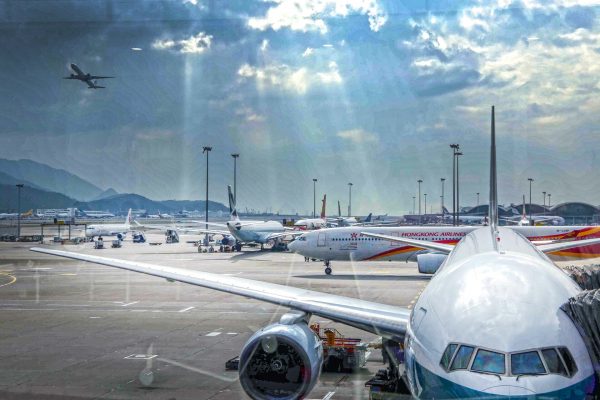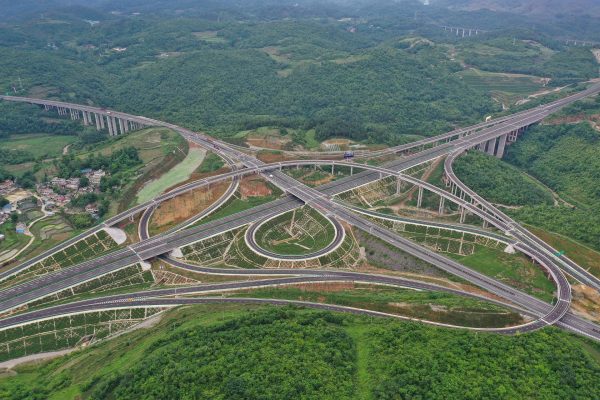Hong Kong-made astronauts are no longer an illusory fantasy. Recently, China Manned Space Agency (CMSA) announced the official launch of the recruitment of the fourth batch of astronauts, and payload specialists will be selected in HKSAR for the first time.
12 to 14 new reserve astronauts will be recruited for future spaceflight missions. Among them, there will be seven to eight spacecraft pilots, three to four spaceflight engineers and two payload specialists.
As the organizer of the recruitment, the CMSA will, for the first time, select payload specialists from the Hong Kong and Macao Special Administrative Regions. The spaceflight payload specialists will come from researchers focusing on space science and applications, said the CMSA.
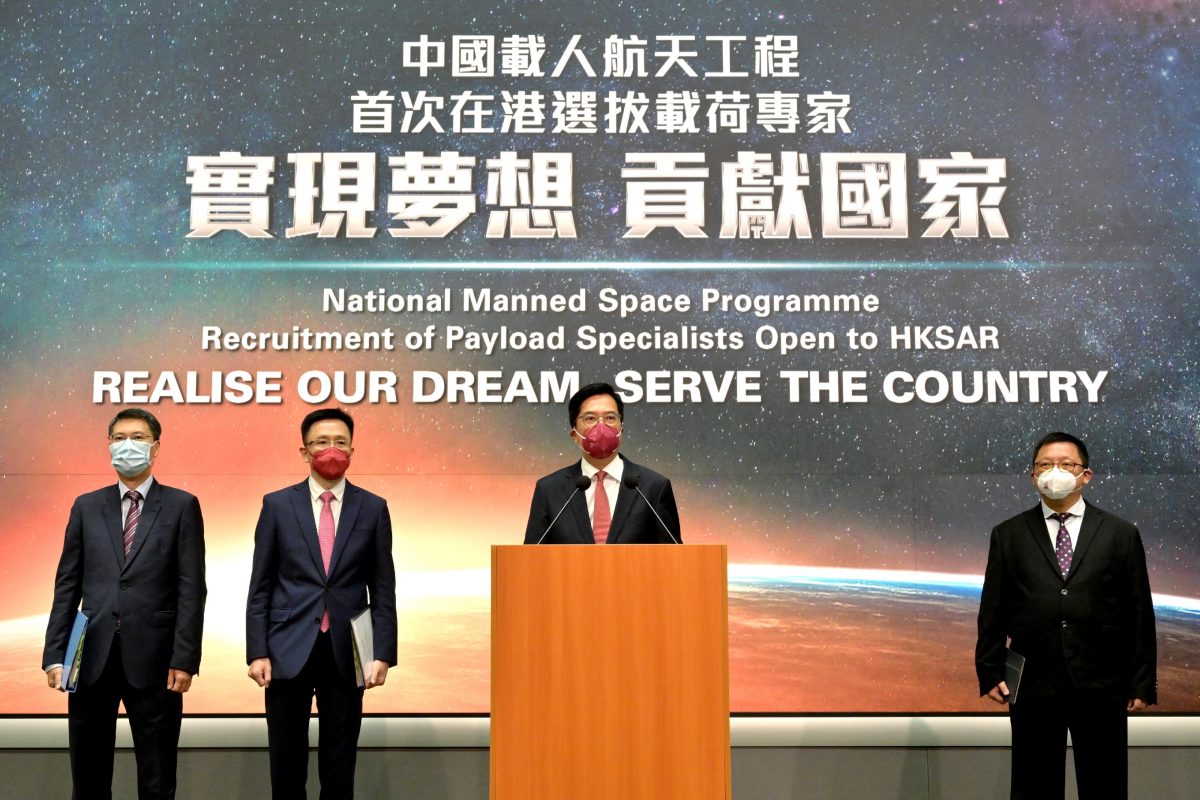
John Lee, the Chief Executive of Hong Kong, described this as an “historic present”, adding that it symbolizes the country’s confidence in Hong Kong’s research capabilities and its care for the development of Hong Kong youth.
“The selection of researchers by the CMSA this time has given Hong Kong people a chance to realize their dreams of going to space and contribute to the country, ” said Lee in a statement, “the SAR government will definitely do its best to assist in the selection process.”
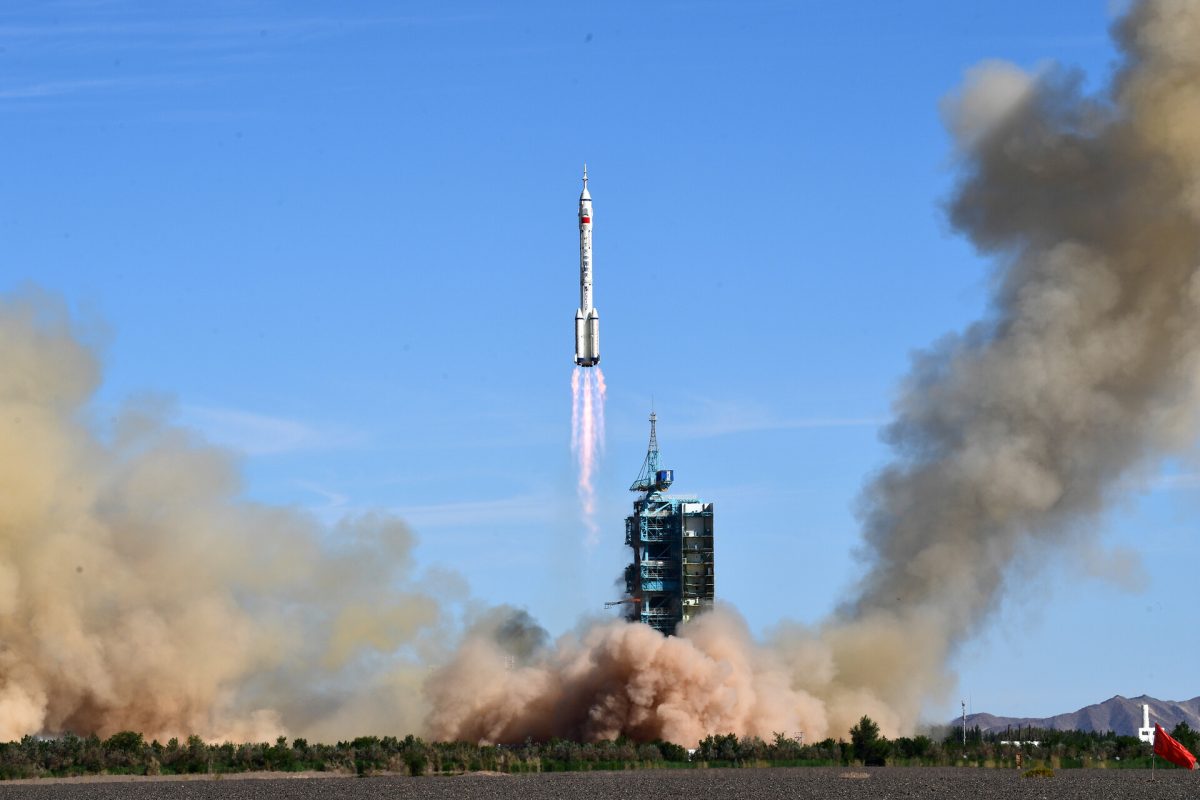
On June 17, 2021, the Long March 2 F Yao 12 carrier rocket carrying the Shenzhou 12 manned spacecraft was ignited and launched at the Jiuquan Satellite Launch Center. (Photo: KHCNA)
Hong Kong has been participating in the aerospace industry of the country in the past year and counting. For example, the “Surface Sampling and Packing System” developed by the research team of the Hong Kong Polytechnic University has assisted Chang’e 5 in completing the lunar sample return mission. Besides, the “Mars Landing Surveillance Camera” invented by researchers at PolyU has provided support to Mars landing of Tianwen-1.
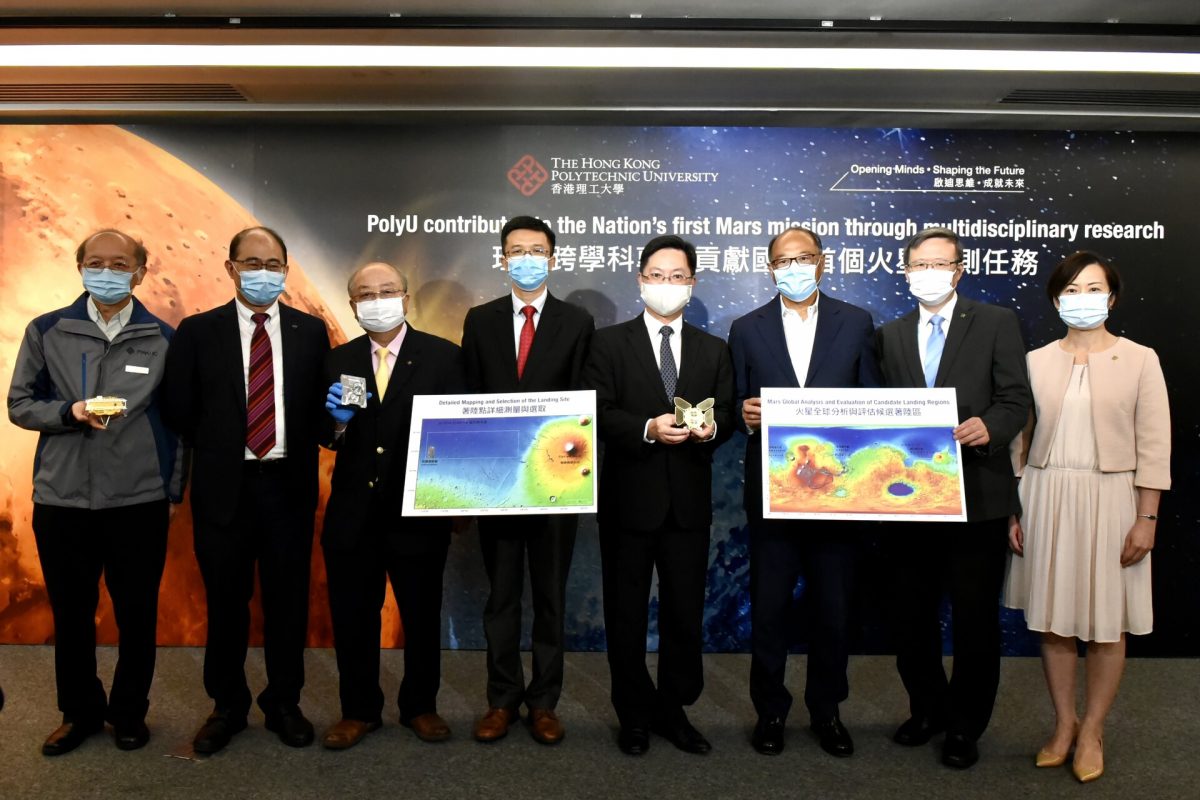
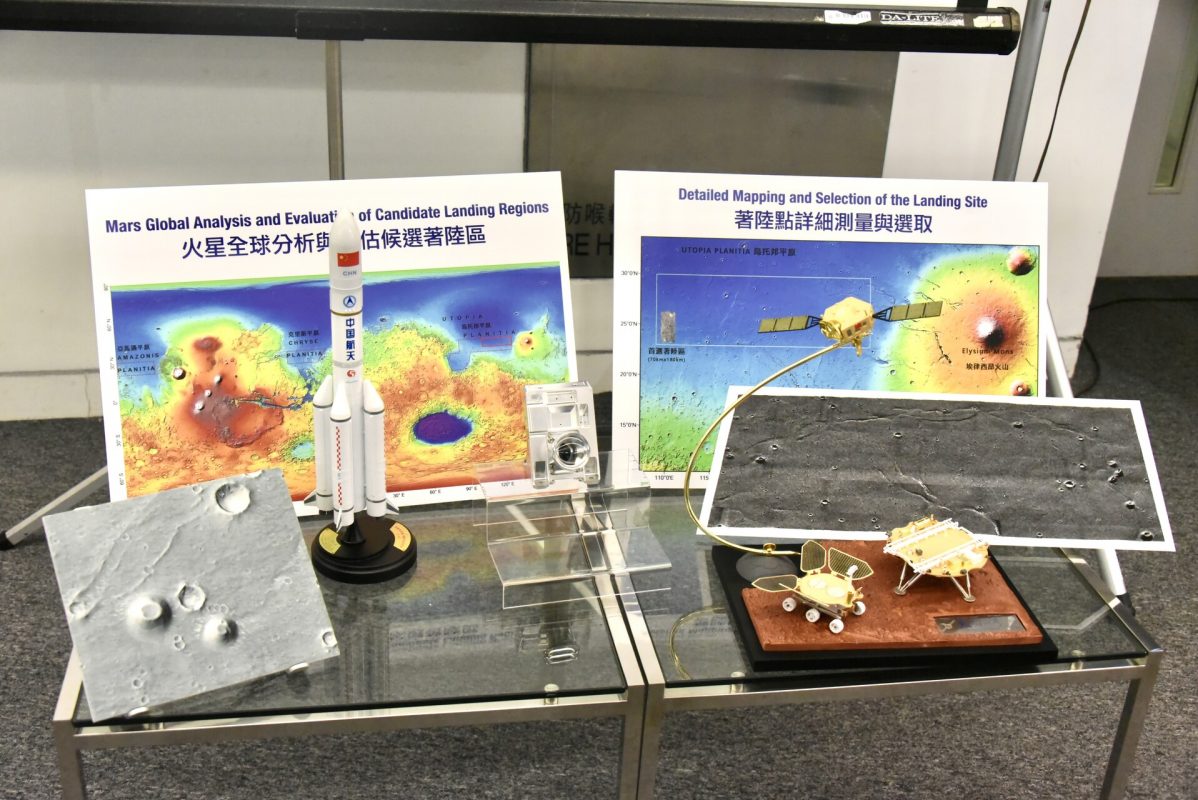
On 21 May 2021, the HK PolyU held a press conference to introduce the contribution in the Tianwen-1 mission. The picture shows a model of the research results. (Photo: KHCNA)
In addition, Hong Kong youths are very enthusiastic about the space industry. Whether it was the communication between Hong Kong youths and astronauts such as Yang Liwei and Nie Haisheng, or the ‘live dialogue from space’ between the national astronauts and students, it has aroused the interest of Hong Kong youths in space.
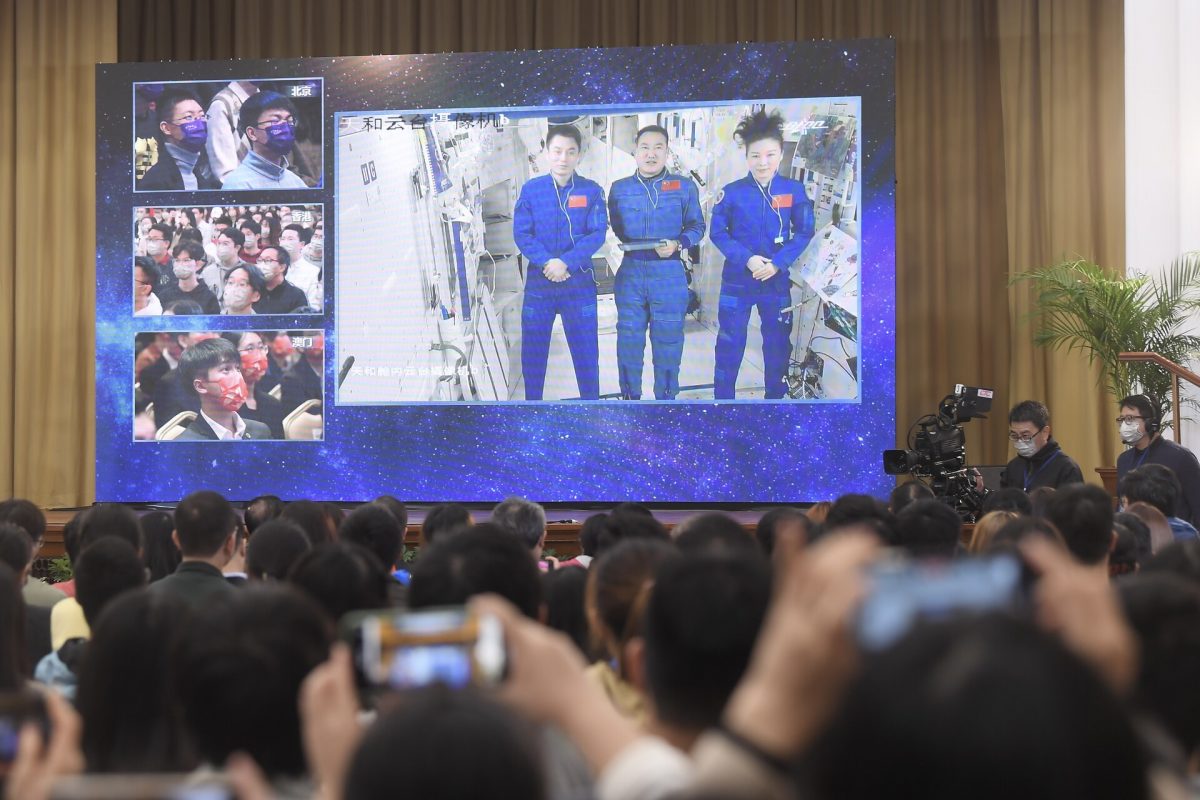
“An Out-of-this-world Live Chat with Astronauts in Space Station on New Year’s Day 2022” was held on January 1, 2022. The astronauts in the Tiangong space station answered questions from students at the University of Hong Kong . (Photo: HKCNA)

On the afternoon of September 3, 2021, astronauts working at the Tiangong Space Station introduced the living environment of the space station to Hong Kong citizens. (Photo: HKCNA)
Over the years, the Hong Kong Government has been nurturing innovation and technology talents, encouraging the implementation of popular science education at schools, and strengthening the students’ knowledge in and application of information technology outside curriculum.
“Hong Kong has been doing very well in its development of basic research in recent years, many academics and experts have been recognized by the nation and even the international community,” said the deputy financial secretary, Michael Wong, who has been assigned as the point person to coordinate the recruitment and relevant promotion.
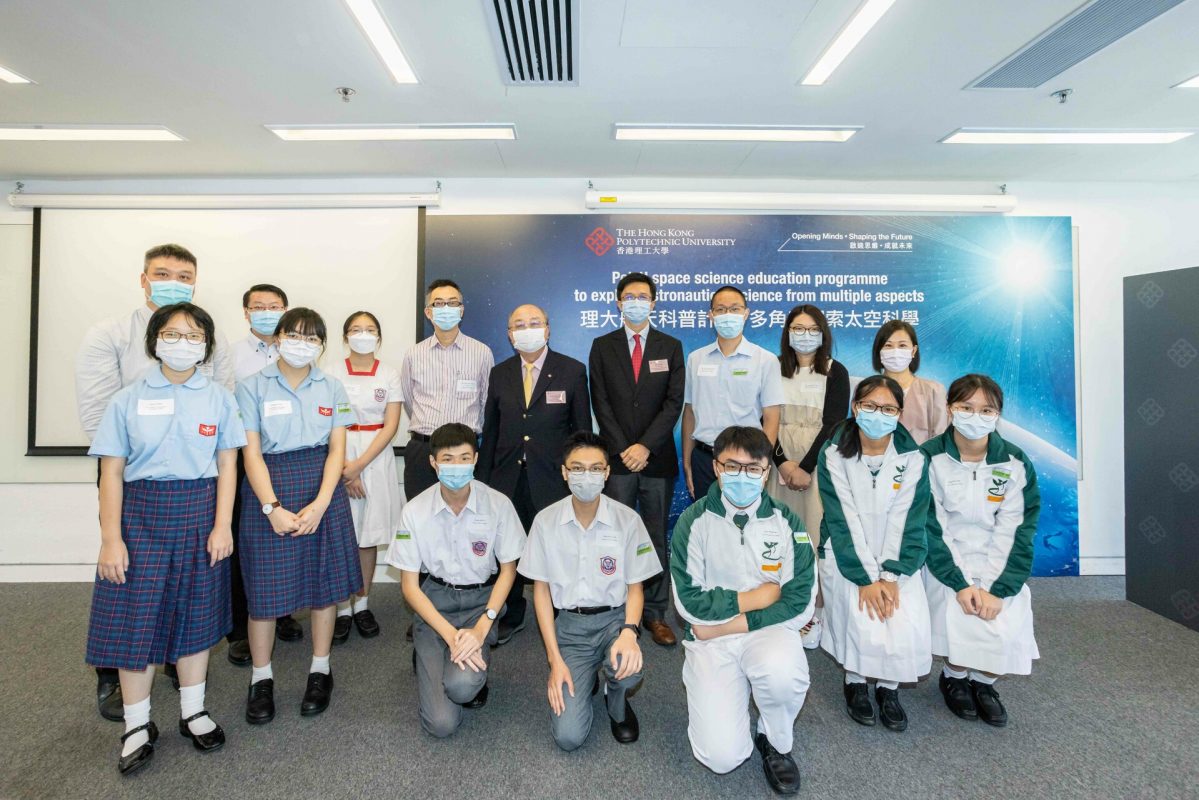
On July 15, 2021, the Hong Kong Polytechnic University announced to hold an 8-month space science education program. (Photo: HKCNA)
Payload specialists are professional scientific researchers who are mainly responsible for conducting aerospace experiments or research, operating space laboratory equipment, and managing daily operations of space stations with other astronauts. The recruitment period in Hong Kong will be from Oct. 6 to 27, where the further screening will be conducted by relevant authorities in the Chinese mainland.
Even though the background can vary – but most scientists and engineers – applicants for payload specialists must meet specific physical requirements and pass space physical examinations with multiple standards that depend on classification. What’s more, the suitable candidates would be aged between 30 to 45, with a PhD in a relevant field of study, and no less than three years of relevant professional experience.
The continuous efforts of China in breaking new ground in aerospace technology in recent years have consolidated its leading position in the global aerospace arena and made Chinese people all over the world proud. Allowing Hong Kong people to participate in the national space industry demonstrates the importance and recognition the country attaches to science and innovation in Hong Kong.

